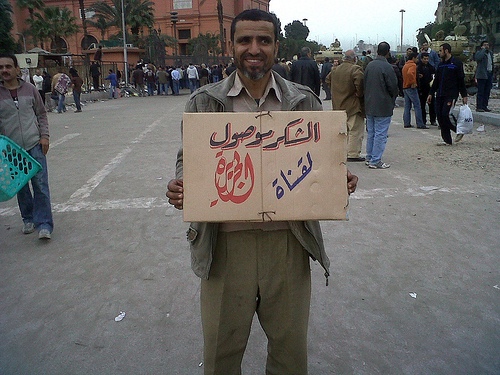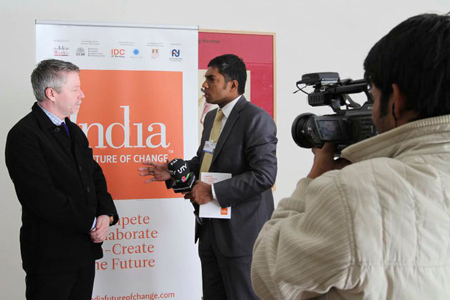The CPD Blog is intended to stimulate dialog among scholars and practitioners from around the world in the public diplomacy sphere. The opinions represented here are the authors' own and do not necessarily reflect CPD's views. For blogger guidelines, click here.
If the events in Egypt taught us anything over the past few weeks it is that notions of freedom and fear run in parallel. I was struck as many of you might have been by the myriad images and poignant stories pouring out of Egypt showing Egyptians by the thousands demanding their freedom and rallying for global support. It reminded me of why I have such an enduring appreciation and admiration for Egyptians as a people. They are deeply proud of their heritage and culture and this is infused in every aspect of daily life.
Let me begin by describing a scenario to you.
It’s Wednesday night in Costa Rica, about 8.30pm, and people in Costa Rica, as people do in most countries, are watching prime-time television. On this particular night, Costa Rica takes on their neighbors Venezuela in a soccer match and, due to the mass popularity of soccer in Costa Rica, it is drawing a large audience. Costa Rica scores, and after endless replays and analysis of a truly average goal, the action cuts to a "and here’s the reaction in China" sequence of pictures.

First, let’s be clear that this was the Egyptian Revolution, not the “Facebook Revolution” or the “Twitter Revolution.” Events of the past few weeks belong wholly to spirit of the Egyptian people, not technology. And although it was built on democratic aspirations, this was not a revolution that drew any inspiration from the United States.
WASHINGTON -- From events of the past three weeks a number of lessons can be drawn, some old and some new:
First, the phrase "the Arab street" has been redefined by Tahrir Square. We don’t need acute listening agents or polling to see what the Arab world wants.
Over the last century or so, Israelis have worked to make Israel a part of the Middle East. Israeli sabras (native born Israelis) with their argumentative attitudes; take no prisoners mentality; love for hummus, falafel and “Israeli” salad; tan skin; the yalla (let’s go) and no-translation needed ‘tseh (tongue hiss) live up to the Middle Eastern stereotypes and fit in with regional commonalities. If a tourist was dropped off in a nightclub or beach in Beirut or Tel Aviv, the only notable difference between the patrons would be the spoken language.

There seems to be a consensus that Hollywood has a huge impact on America’s image around the world. There just doesn’t seem to be any consensus on what to do about that.

Pages
Visit CPD's Online Library
Explore CPD's vast online database featuring the latest books, articles, speeches and information on international organizations dedicated to public diplomacy.
POPULAR ARTICLES
-
March 22
-
February 23
-
February 22
-
April 1
-
April 11
Featured Blogger
Join the Conversation
Interested in contributing to the CPD Blog? We welcome your posts. Read our guidelines and find out how you can submit blogs and photo essays >.








